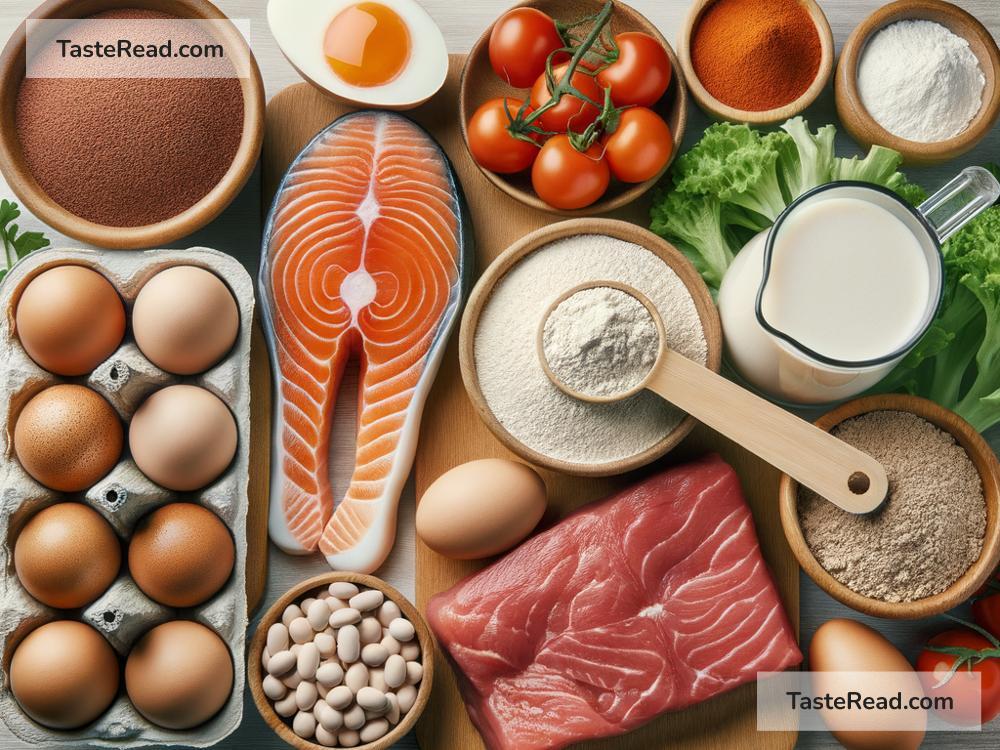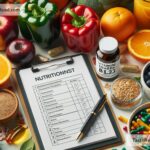The Role of Vitamin B12 in Metabolic Health
Have you ever felt tired for no clear reason or wondered why your energy levels seem to drop despite eating well? The answer could lie in Vitamin B12. This crucial nutrient might not get the attention it deserves, but it plays a big role in keeping your body running smoothly, especially when it comes to your metabolism.
In this blog, we’ll break down what Vitamin B12 does, why it’s important, and how it impacts your metabolic health—all in simple and easy-to-understand language.
What is Vitamin B12?
Vitamin B12, also known as cobalamin, is a water-soluble vitamin that helps your body with several essential processes. It is part of the B-vitamin family and is crucial for making red blood cells, ensuring proper brain function, and supporting DNA production. But what makes Vitamin B12 extra special is its role in metabolism—the process by which your body converts food into energy.
Unlike some other vitamins, your body can’t produce Vitamin B12 on its own. You need to get it from food or supplements. It’s mainly found in animal-based foods like meat, poultry, fish, eggs, and dairy products.
What Is Metabolism, and Why Does It Matter?
Before diving into Vitamin B12, let’s quickly talk about metabolism. Imagine your body is a machine—it needs fuel to keep running. Metabolism is the process that takes the food you eat and turns it into usable energy. This energy powers everything your body does: breathing, thinking, moving, and so much more. Without a properly functioning metabolism, your body wouldn’t have the energy to perform even basic tasks.
Your metabolism relies on many nutrients to work efficiently, and Vitamin B12 is one of the key players.
Vitamin B12’s Role in Metabolic Health
Vitamin B12 impacts your metabolism in several ways:
1. Converts Food into Energy
Vitamin B12 helps your body break down carbohydrates, fats, and proteins from your food into energy. It acts as a helper molecule in chemical processes that release energy from nutrients. If you don’t have enough Vitamin B12, your energy production can slow down, leaving you feeling fatigued and sluggish.
2. Supports Healthy Blood Cells
Vitamin B12 is vital for making red blood cells, which transport oxygen throughout your body. Without enough oxygen, your cells can’t produce energy efficiently. This is why people with Vitamin B12 deficiency often feel weak and tired—they’re literally running low on fuel.
3. Maintains Brain and Nervous System Health
A healthy metabolism isn’t just about physical energy; your brain requires energy as well. Vitamin B12 plays a significant role in maintaining your brain and nervous system. It helps produce myelin, the protective covering around nerve cells, which allows signals to travel smoothly. A deficiency can lead to brain fog or even neurological issues.
4. Supports DNA Production
Your body needs energy to grow, repair itself, and maintain functions like hormone production. Vitamin B12 aids in the creation of DNA, the blueprint of every cell in your body. This means that a healthy metabolism also depends on proper cell functioning, which Vitamin B12 helps regulate.
5. Helps Prevent Homocysteine Buildup
Homocysteine is an amino acid that can build up in the blood and contribute to health problems like cardiovascular disease. Vitamin B12 helps metabolize homocysteine into other useful substances, reducing its levels and protecting your heart health.
Signs of Vitamin B12 Deficiency
So what happens if you don’t get enough Vitamin B12? A deficiency can disrupt your metabolism and lead to symptoms such as:
- Fatigue: Feeling unusually tired even after getting enough sleep.
- Brain fog: Trouble concentrating or forgetfulness.
- Weakness: Feeling weak or physically drained without a clear reason.
- Mood changes: Experiencing depression, irritability, or anxiety.
- Tingling: Experiencing tingling sensations in your hands or feet due to nerve damage.
- Pale skin: Your skin might appear pale due to anemia—a condition caused by a lack of healthy red blood cells.
People most at risk for deficiency include vegans (since plant-based foods have little to no Vitamin B12), older adults, and individuals with digestive issues like Crohn’s disease or celiac disease.
How to Get Enough Vitamin B12
Thankfully, it’s easy to get Vitamin B12 through diet or supplements. Here are some great sources:
- Animal Products: Meat, fish, eggs, and dairy are excellent sources of B12. Beef liver and clams are particularly rich in this nutrient.
- Fortified Foods: If you’re vegetarian or vegan, look for cereals, plant-based milks, and nutritional yeast with added Vitamin B12.
- Supplements: B12 supplements are available in pills, liquids, or even injections, especially for people who have trouble absorbing it from food.
Final Thoughts
Vitamin B12 is a key ingredient for good metabolic health. Without it, your body struggles to convert food into energy, produce healthy blood cells, and keep your brain and nervous system functioning properly. Getting enough Vitamin B12 is essential for feeling energetic, thinking clearly, and maintaining overall health.
If you think you’re not getting enough Vitamin B12, talk to your doctor. They can run tests to check your levels and suggest changes to your diet or supplements to help you meet your needs. Supporting your metabolism starts with giving your body the tools it needs—and Vitamin B12 is one of the most important.
Take care of your health, and stay energized!


